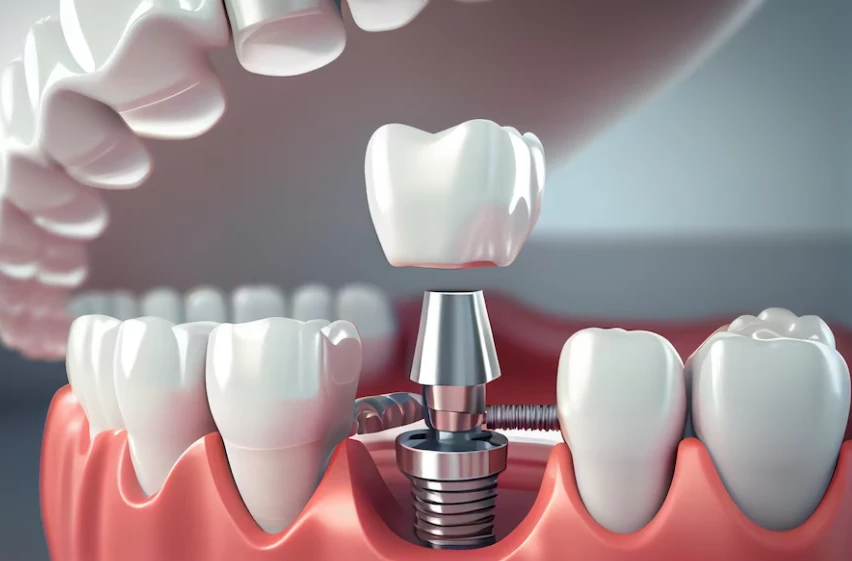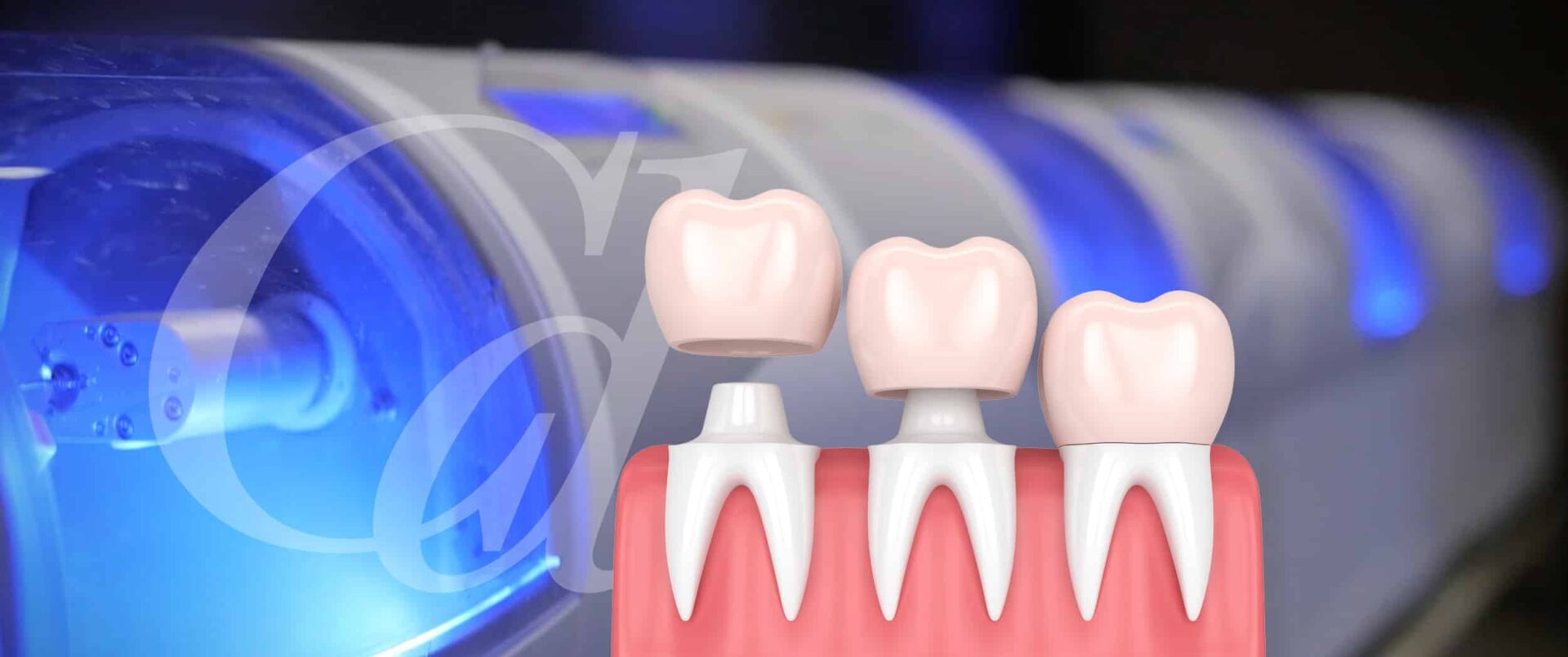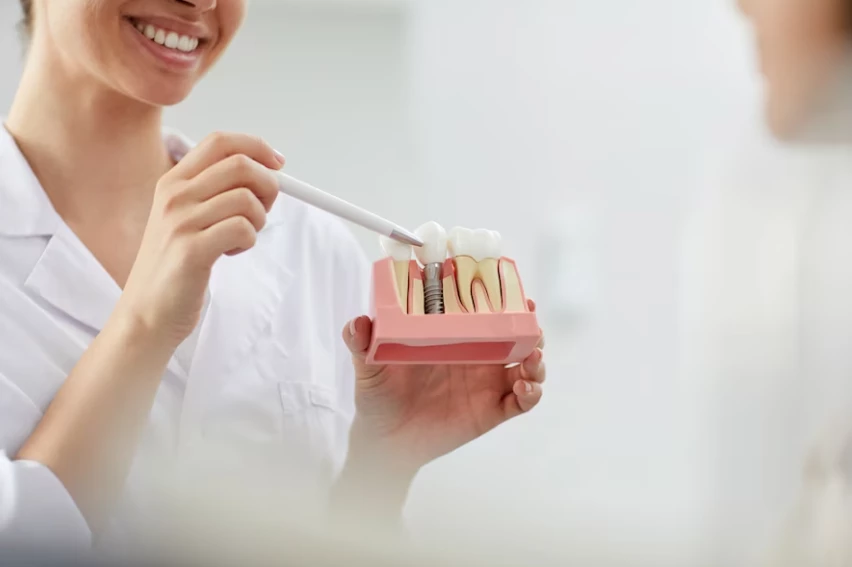Dental implants are now a well-liked and practical way to replace lost teeth. They offer a natural look and feel, as well as functionality similar to real teeth. However, one of the most common questions patients have is, “how long do dental implants last?”.
Let’s examine the variables that affect dental implant longevity, the frequency of dental examinations that is advised, potential conditions that could limit the implants’ lifespan, and the typical failure rate over time to give a thorough understanding.
What Factors Influence The Lifespan Of Dental Implants?
Primarily, the skill and experience of the dentist performing the procedure play a crucial role. A well-placed implant by an experienced professional can last significantly longer. Additionally, the quality of the implant materials used and the patient’s oral and overall health are pivotal.
Patient habits also heavily impact the lifespan of dental implants. Maintaining good oral hygiene is crucial for preserving the health of implants and the tissues around them. Brushing, flossing, and routine dental checkups all help. Lifestyle decisions that compromise the healing process and raise the risk of infection, including smoking or binge drinking, can have a negative impact on how long implants last.
Another vital factor is the placement of the implant. Implants placed in areas of the mouth that experience less stress from chewing, such as the front teeth, may last longer than those in the back, which endure more pressure. The patient’s bone density and jawbone health are also critical. Sufficient bone support is necessary for the implant to integrate properly and remain stable over time.
How Often Should Dental Implants Be Checked By A Dentist?
Regular check-ups are crucial for maintaining the health and longevity of dental implants. Here’s why consistent dental visits are essential and what you can expect during these appointments.
Routine Examinations and Cleanings
It is generally recommended that patients with dental implants visit their dentist every six months for a routine examination and cleaning. These regular check-ups allow the dentist to:
- Monitor the condition of the implants.
- Assess the health of the surrounding gum tissue.
- Detect any potential issues early on.
Professional Cleaning
During these appointments, professional cleaning is performed to remove plaque and tartar buildup that cannot be eliminated by regular brushing and flossing alone. This helps prevent gum disease and peri-implantitis, both of which can compromise the health of the implants.
Assessment of Implant Integrity
The dentist will examine the integrity of the implant, ensuring it is functioning correctly and is free from signs of wear or damage. This includes checking for:
- Any loosening or movement of the implant.
- Indications of inflammation or infection near the implant site.
- The stability and health of the implant crown or prosthetic.
Gum and Bone Health Evaluation
The health of the gums and the bone structure supporting the implant are critical for the longevity of the implant. The dentist will:
- Assess the gum tissue for signs of disease or recession.
- Evaluate bone density and support around the implant.
Periodic X-rays
X-rays may be taken periodically to provide a comprehensive view of the implant and the surrounding bone structure. These images help the dentist ensure that the implant remains securely anchored in the jawbone and detect any hidden issues that may not be visible during a routine examination.
Early Intervention
If any problems are detected during these visits, early intervention can prevent more severe complications. Addressing issues promptly can extend the lifespan of the implant and maintain overall oral health. Early detection and treatment of potential problems are key to avoiding implant failure and ensuring that the implant continues to function effectively.
By adhering to a regular check-up schedule, patients can significantly enhance the success and longevity of their dental implants. These routine visits are a proactive measure to ensure that the implants remain in optimal condition and provide lasting benefits.
Are There Any Conditions That Can Shorten The Life Of Dental Implants?
Several conditions can potentially shorten the lifespan of dental implants.
Poor Oral Hygiene
One of the most significant risk factors is poor oral hygiene. Failing to maintain good oral health can lead to peri-implantitis, an inflammatory condition similar to gum disease. This condition affects the tissues surrounding the implant, causing them to become inflamed and infected. If left untreated, peri-implantitis can lead to bone loss around the implant, ultimately resulting in implant failure.Preventing this illness requires maintaining a strict oral hygiene regimen that includes expert cleanings, frequent flossing, and brushing.
Chronic Health Conditions
Certain chronic health conditions can also impact the longevity of dental implants. For instance, diabetes can impair the body’s ability to heal and increase the risk of infection. Patients with uncontrolled diabetes may face a higher likelihood of implant complications. Similarly, autoimmune diseases, which affect the body’s immune response, can also increase the risk of implant failure due to infection and impaired healing.
Bone-Related Disorders
Patients with osteoporosis or other bone-related disorders may experience difficulties with implant stability. Osteoporosis reduces bone density and strength, making it challenging for the implant to integrate properly with the jawbone. This reduced bone support can lead to implant loosening or failure over time.
Bruxism (Teeth Grinding)
Habits such as bruxism, or teeth grinding, can put excessive stress on dental implants. The constant grinding and clenching can cause mechanical failure of the implant, as well as damage to the surrounding bone and tissues. It is crucial for patients who grind their teeth to seek treatment, such as wearing a nightguard during sleep. This protective device can help mitigate the impact of grinding, preserving the integrity of both implants and natural teeth.
Smoking
Smoking is another significant factor that can compromise the success of dental implants. Use of tobacco slows the process of healing and raises the risk of infection by affecting blood flow to the gums. It is recommended that smokers give up before having implant surgery and during the healing period because they have a higher risk of implant failure than non-smokers.
Patients can take proactive measures to guarantee the longevity of their dental implants by being aware of these issues and taking appropriate action. For dental implants to be healthy and long-lasting, regular dental checkups, adherence to proper oral hygiene, and management of underlying medical issues are necessary.
What Is The Average Failure Rate For Dental Implants Over Time?
While dental implants boast a high success rate, they are not infallible. Studies indicate that dental implants have an average success rate of around 95% over ten years. This means that about 5% of implants may fail within this period. However, the failure rate can vary based on the factors mentioned earlier, such as patient health, oral hygiene, and lifestyle choices.
Early implant failure, occurring within the first few months post-surgery, is often due to issues with the initial healing and osseointegration process. Factors such as surgical technique, implant placement, and immediate post-operative care can influence early success. Late implant failure, occurring after the implant has successfully integrated, is typically related to long-term factors such as oral hygiene, gum disease, or mechanical stress.
It’s important to note that while some implants may fail, many patients experience successful, long-lasting results. The success rates and durability of dental implants are still being improved by developments in dental technology and procedures.
When taken care of appropriately, dental implants can offer a long-lasting and attractive replacement for lost teeth. A number of variables, including the dentist’s expertise, the caliber of the materials, the patient’s lifestyle, and general health, affect how long implants last. It’s crucial to get routine dental exams to keep an eye on the condition of the implants and to quickly address any problems.
While certain conditions and habits can shorten the lifespan of implants, the overall success rate remains high, offering patients a reliable option for tooth replacement. By understanding these factors, patients can take proactive steps to ensure their dental implants last for many years.
Why Cascade Dental is Your Best Choice for Dental Implants
At Cascade Dental, choosing the right provider for dental implants is crucial, and our commitment to excellence, patient care, and advanced technology makes us the premier choice. Our team comprises highly skilled professionals specializing in implant dentistry, ensuring top-quality care with the latest advancements. We prioritize personalized care and comfort, offering a warm, welcoming environment and customized treatment plans.
Our cutting-edge technology, including 3D CBCT imaging, enables precise and efficient implant procedures, minimizing complications. We provide comprehensive aftercare and support, guiding you through recovery and maintaining implant health. With competitive and transparent pricing, dental implants at Cascade Dental range from $3,000 to $5,000 per implant, with various financing options available to fit your budget.
Frequently Asked Questions
How long does the dental implant process take?
From beginning to end, the dental implant procedure usually takes many months. This covers the initial consultation, the implantation of the implant, the healing phase, and the final restoration installation. The exact timeline can vary based on individual factors such as the need for bone grafting and the healing response.
Are dental implants painful?
Because the implant technique is done under local anesthesia, you won’t experience any pain during the treatment. During the early healing phase, some discomfort and edema are common; however, these can be controlled with prescription painkillers and appropriate treatment.
What is the success rate of dental implants at Cascade Dental?
Our success rate for dental implants at Cascade Dental is exceptionally high, reflecting our expertise and use of advanced technology. We are proud to report a success rate of over 95%, ensuring that our patients receive reliable and lasting results.
Can I get dental implants if I have gum disease?
Dental implants may not function as intended if gum disease exists. In order to install implants, any gum disease that may already exist must be treated. To make sure your gums are healthy and prepared for implants, our staff will do a comprehensive evaluation and create a treatment plan.
What financing options are available for dental implants?
We offer a variety of financing options to make dental implants more affordable. Our team will work with you to find a payment plan that fits your budget, including interest-free financing options and assistance with insurance claims.
Schedule Your Consultation Today
Is getting dental implants something you’re willing to do to improve your smile? To book your appointment, call Cascade Dental now. A beautiful, healthy smile is within your reach with the assistance of our specialists. Dental implants from Cascade Dental can improve your quality of life, so don’t put it off any longer.
Ready for a new smile? Contact us now!



